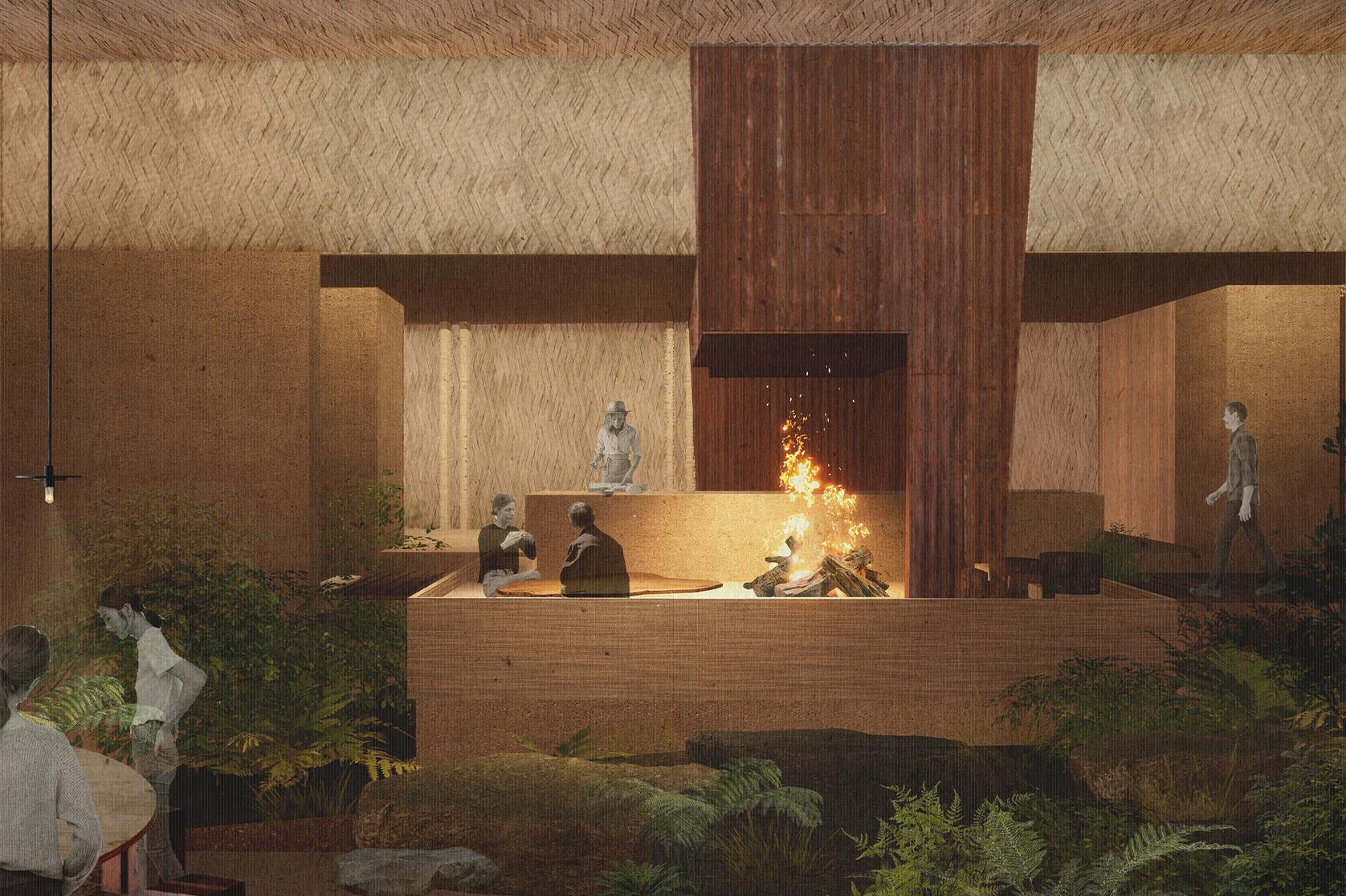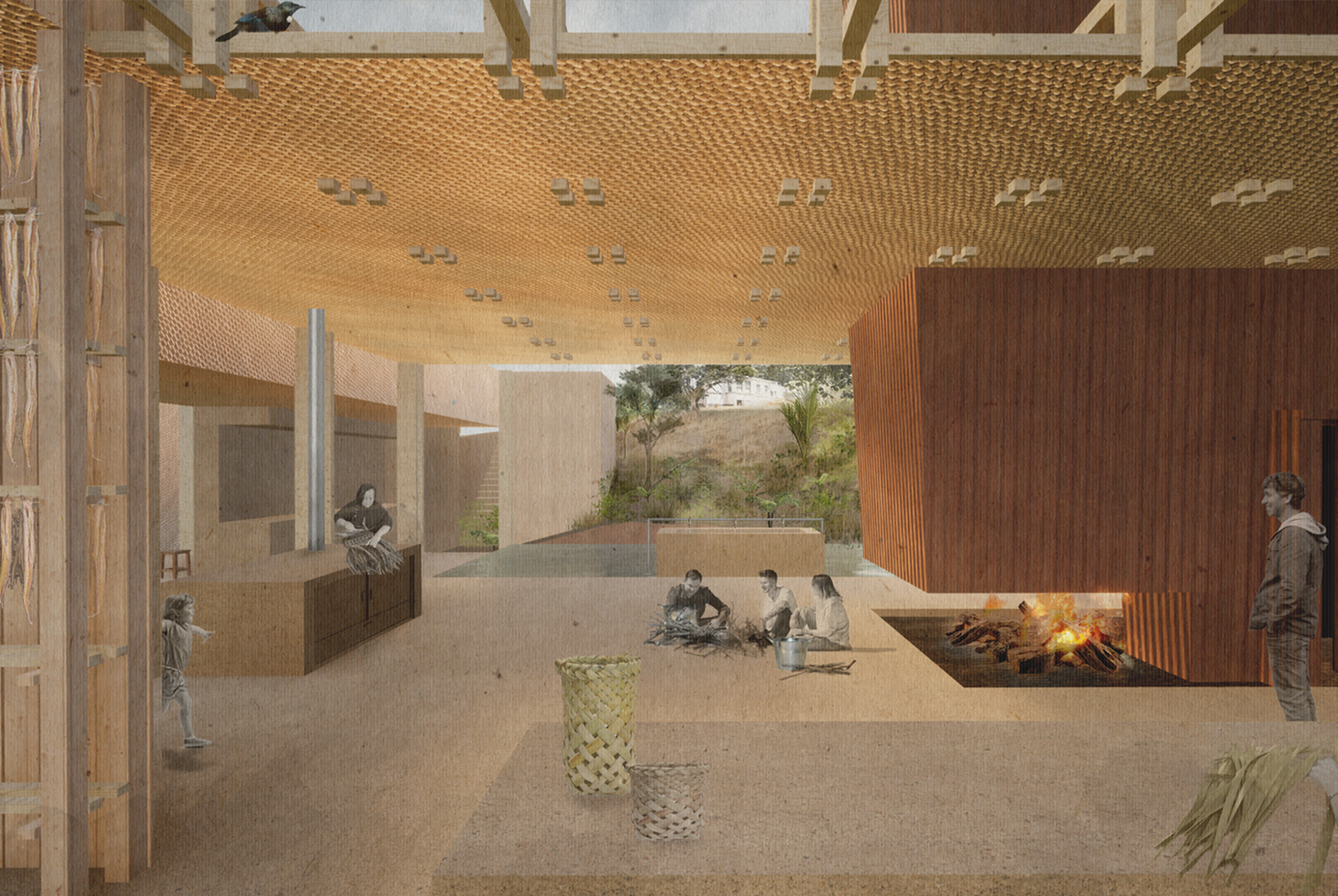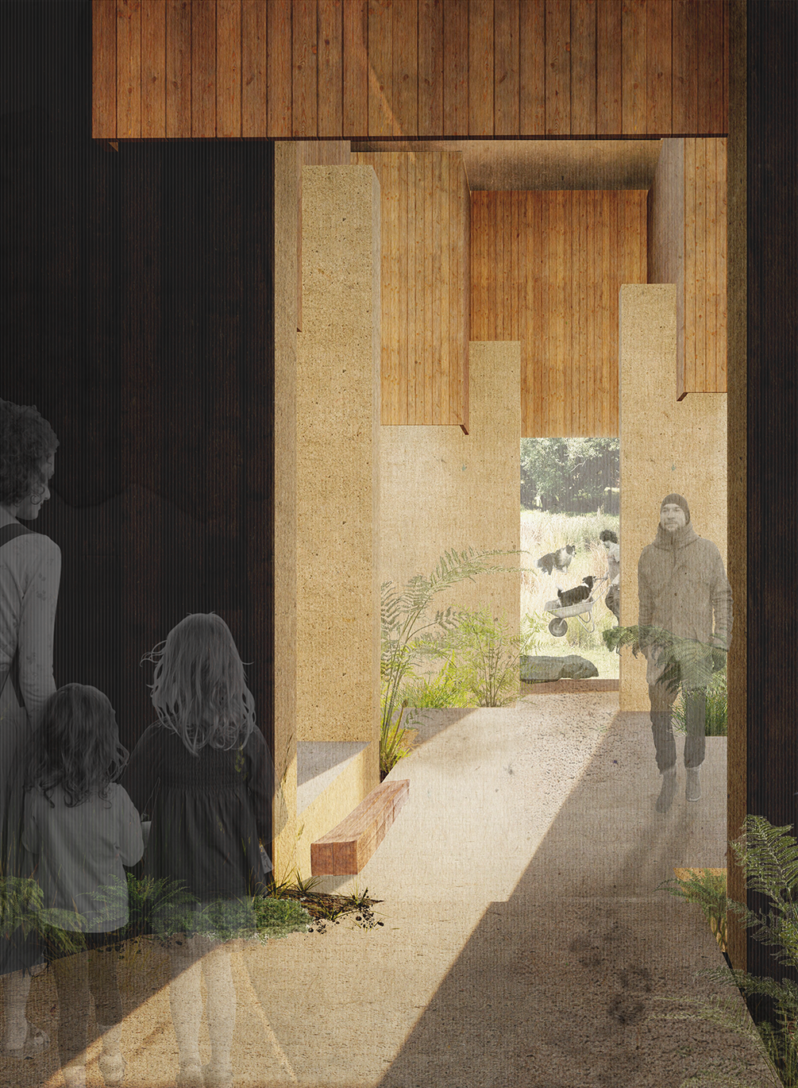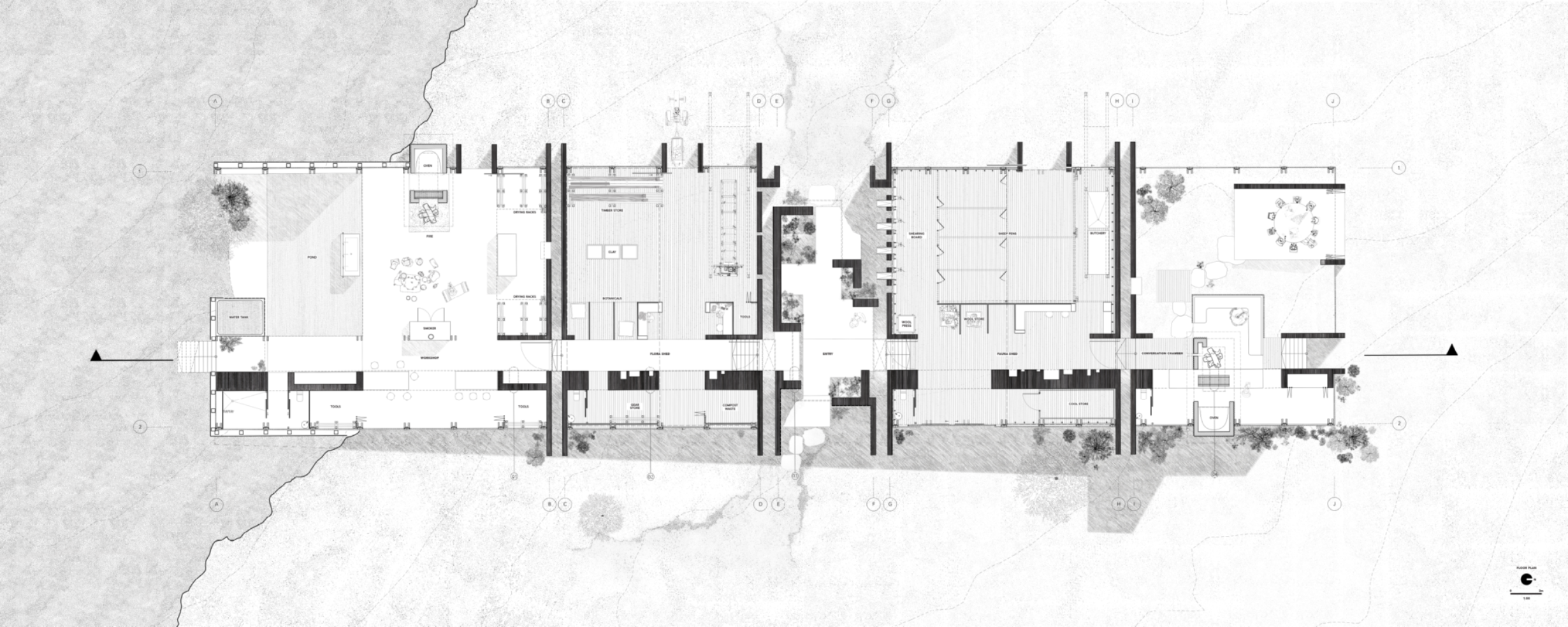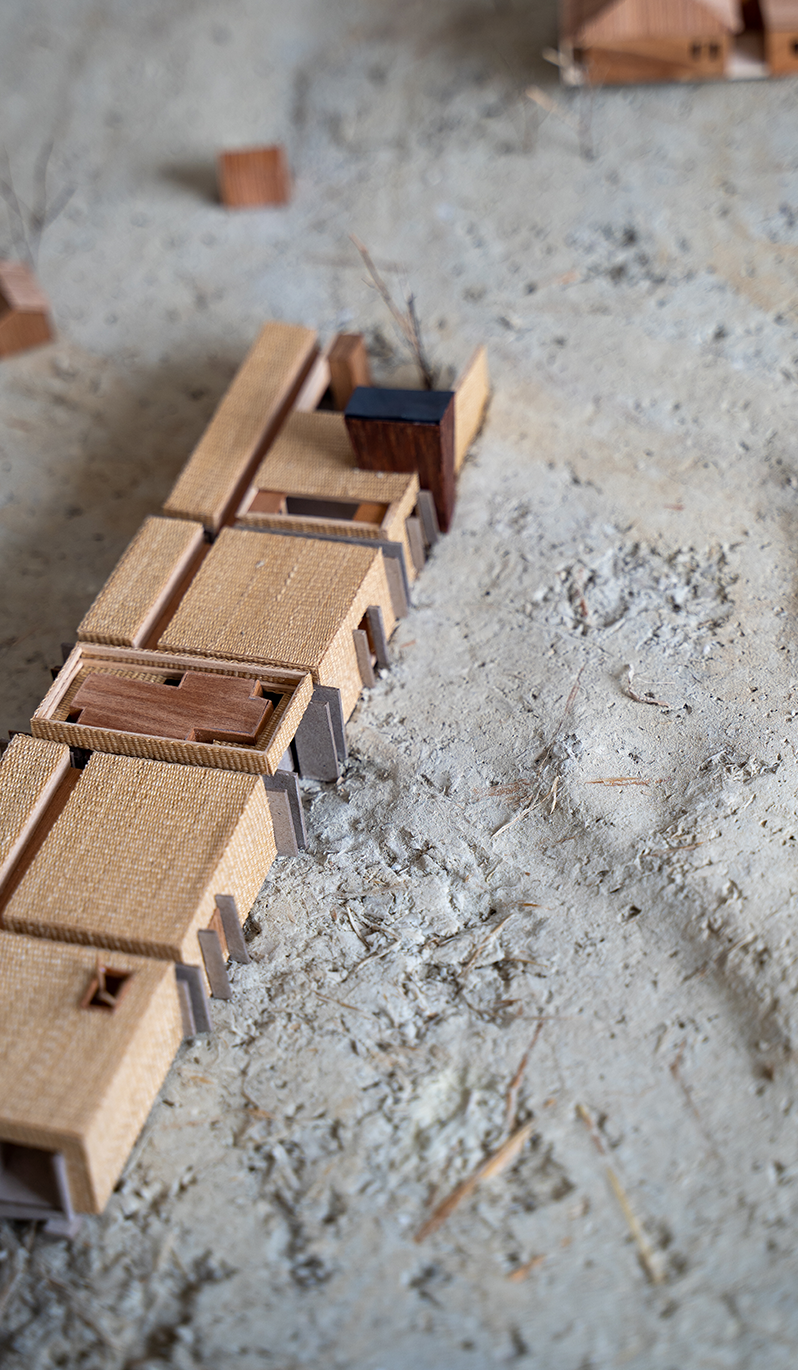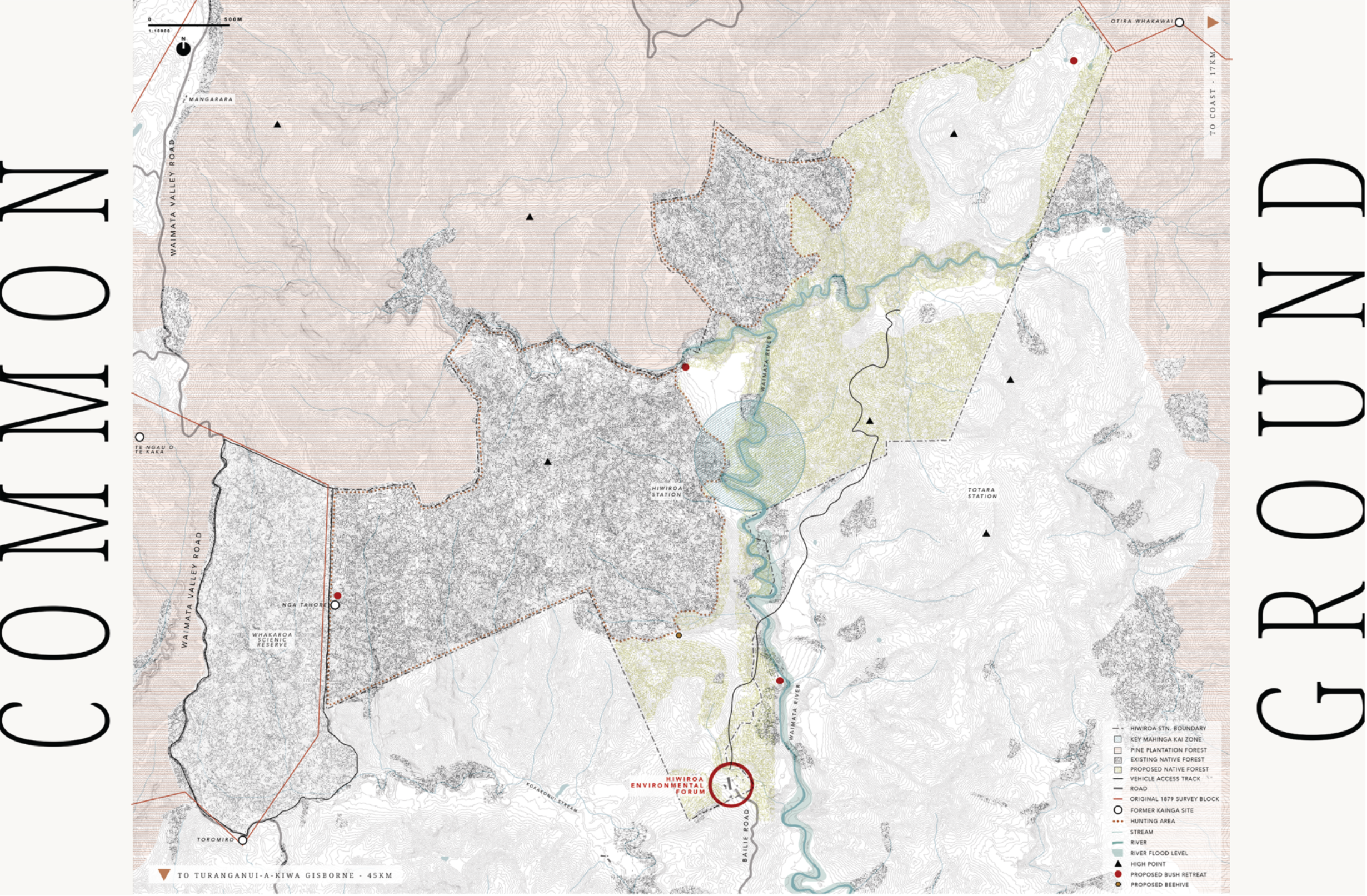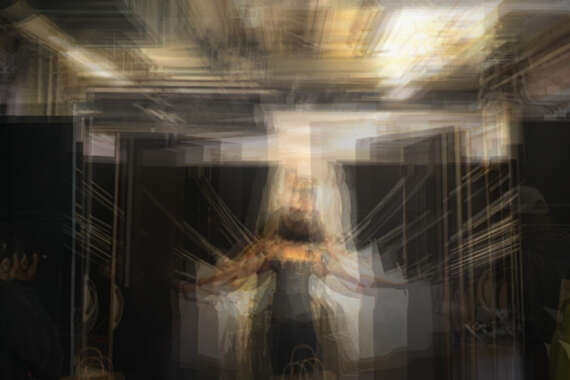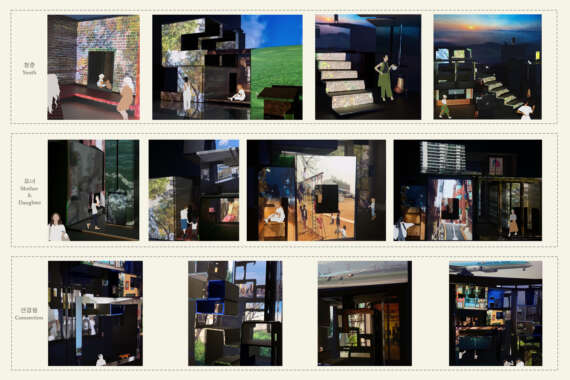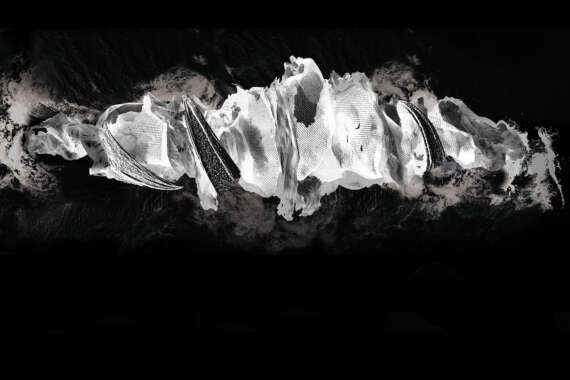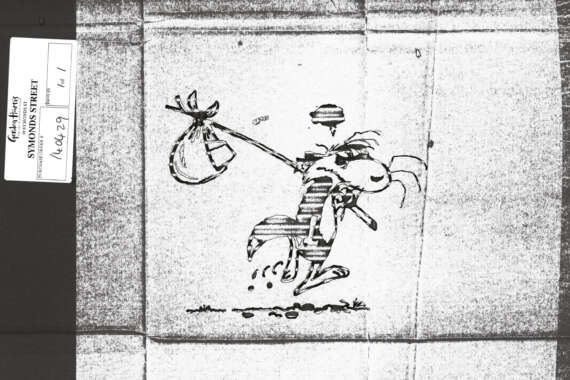Increased globalisation in recent decades has seen a dramatic depletion of vernacular environmental knowledge - as a result, the historically interwoven relationship between people and the land appears to be disintegrating. Within this context, this thesis questions the role of architecture in developing a sustainable future for Aotearoa: if the architectural system of Western knowledge supports the pursuit of a singular truth, what is the capacity for architecture to accommodate multiple ontologies?
Through three lenses - the pragmatic, the poetic, and the visceral - this thesis aims to speculate on the future of ‘knowledge architecture’ in a world increasingly wracked by environmental disasters. While this is a global challenge, this thesis specifically addresses the New Zealand context – namely the co-existence of multiple unique strands of knowledge within a colonised territory. Elevating marginalised knowledge of Aotearoa’s indigenous forest ecology could play a critical role in mitigating future environmental damage: this thesis reimagines the divide between conventional farming and reforestation, with a view to a world where reforestation is ‘good business’ rather than ‘nice to have’. Such a multifaceted issue sets a significant challenge for this thesis to navigate, the breadth of which is condensed through the positioning of architecture as a conduit for discussion within the battleground of the land, rather than an all-powerful solution.
The selected site (Hiwiroa Station, a farm north of Gisborne) tests the capability of architecture to support this complex discussion; its traumatised landscape is indicative of nationwide cultural and environmental fractures. The design outcome is a ‘forum for vernacular environmental knowledge’: a regional-scale touchpoint at the intersection of people and nature, spatially arranged for the generation and proliferation of ideas through making and talking. It aims to interweave myriad strands of knowledge, allowing them to occupy a simplified, immersive space, with the ultimate goal of strengthening the relationship between people and the land in Aotearoa.
